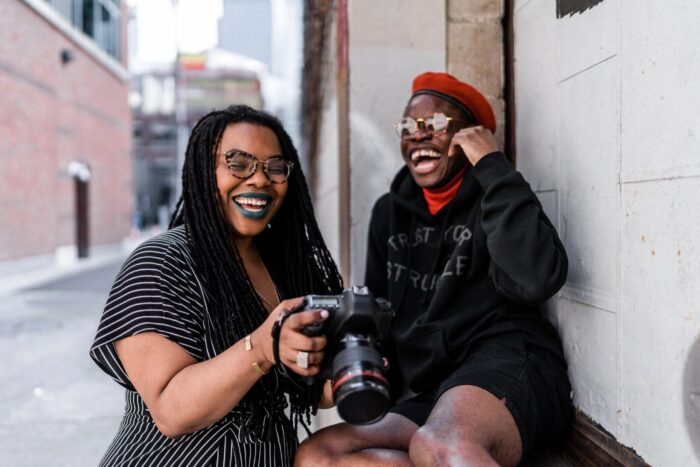When it comes to photography, choosing the right school is essential for a successful and fulfilling career. Not only do you need to learn the technical aspects of the craft, but you also need to be able to express yourself creatively. In this article, businessman Hunter Hobson shares ten questions you should ask yourself before deciding which photography school to attend.

1) What Is Your Budget?
Your budget is one of the first things to consider when selecting a photography school. Many schools offer different tuition prices depending on the courses you plan to take, so it’s essential to know precisely how much money you have available before making any decisions. Some schools also offer financial aid or scholarships for students who demonstrate financial need or academic excellence, so check those options.
2) What Types of Programs Are Available?
Another question you should ask when selecting a photography school is what programs they offer. You want to ensure that the school has the program that best fits your needs and interests.
Different schools may offer specialized courses or certificates in certain areas, such as documentary photography or portraiture. Knowing what type of program best suits your goals will help narrow your options.
Make sure they offer classes that will help prepare you for the type of photography career you want. Do they have courses that cover topics such as portrait photography, landscape photography, or photojournalism? You should also research if they have courses related to editing software or business practices.
3) What Can I Expect From The Curriculum?
Once you’ve identified which schools offer the courses relevant to your field, it’s essential to research the curriculum. Does it include hands-on training with professional equipment? Make sure the curriculum meets your needs and aligns with your goals.
4) Are There Any Special Programs Or Events Offered Through The School?
Another thing to consider is whether or not the school offers any special programs or events that may benefit students. These may include guest lectures by industry professionals, workshops, field trips, contests, or exhibitions. All these things can provide valuable networking opportunities and help build relationships within the industry while providing insight into what it takes to succeed in this field.
5) Who Are The Instructors?
Another factor to consider when selecting a photography school is who will teach the classes. The instructors must have real-world experience in their field and can provide practical advice and instruction from their own experiences. Taking time to research each instructor and read reviews from past students can help ensure that you get quality education from experienced professionals who will help you reach your goals.
6) How Accessible Is The Faculty And Staff Of This School?
When researching potential schools, pay attention to how accessible faculty members are—not only during class but also outside class hours. Do professors respond when contacted by email or phone? Is there someone available for guidance if needed on evenings and weekends? Knowing that faculty members are easily accessible can make all the difference in getting help when needed throughout your educational journey.
7) What Is The Student-Teacher Ratio?
It’s essential to consider the student-teacher ratio of the school you’re choosing. A higher one can mean less individualized attention from instructors and more competition for resources like equipment and darkroom space. Try to find out how many students typically enroll in each class so you know what kind of support you can expect from your teachers once classes start.
8) How Diverse Is The Student Body?
When choosing a photography school, one of the most important factors is how diverse the student body is. Not only will you be surrounded by many new perspectives and experiences, but you’ll also benefit from having various cultures and backgrounds informing your craft. Being in an environment that celebrates diversity can take your creativity to the next level.
Furthermore, building relationships with people from different walks of life can open up more avenues for professional collaboration. While you should always consider the quality of instruction when assessing a photography school, make sure to factor diversity into your decision.
9) What Resources Does The School Offer?
Another critical question to ask yourself when selecting a photography school is what resources they offer students. In addition to classroom instruction, some schools may provide access to darkrooms or digital labs where students can practice their skills outside class hours.
Other schools may offer travel opportunities or internships with local photographers or publications, which can be great ways for students to gain real-world experience in their chosen field while still enrolled in classes at their chosen institution.
10) What Can I Expect After Graduation?
When selecting a photography school, it’s essential to consider how your education will prepare you for life after graduation. Seek out alumni testimonials or other program evaluations to better understand its effectiveness in preparing grads for the “real world.”
How successful is the career placement success rate? Are there internship options available through the school? Answering questions like these can help ensure that when you finally graduate, you’ll be confident enough to step into your new role as a professional photographer!
Final Thoughts
Hunter Hobson understands that selecting a photography school involves much more than deciding which classes sound interesting. It requires careful consideration and research into the quality of instruction and resources each institution offers and the post-graduation job prospects associated with them.
By asking yourself these ten questions before committing to any program, you’ll be able to set realistic expectations about what life after graduation might look like for you! With this information, choosing a suitable photography school should be much easier!


